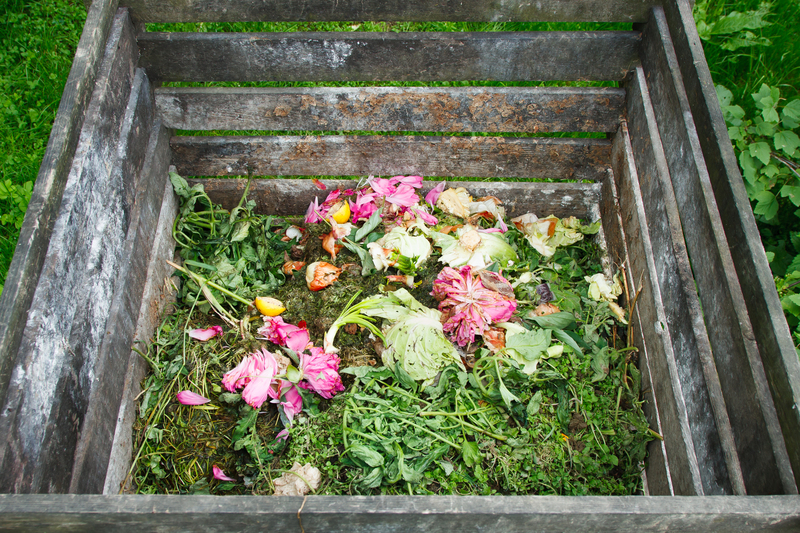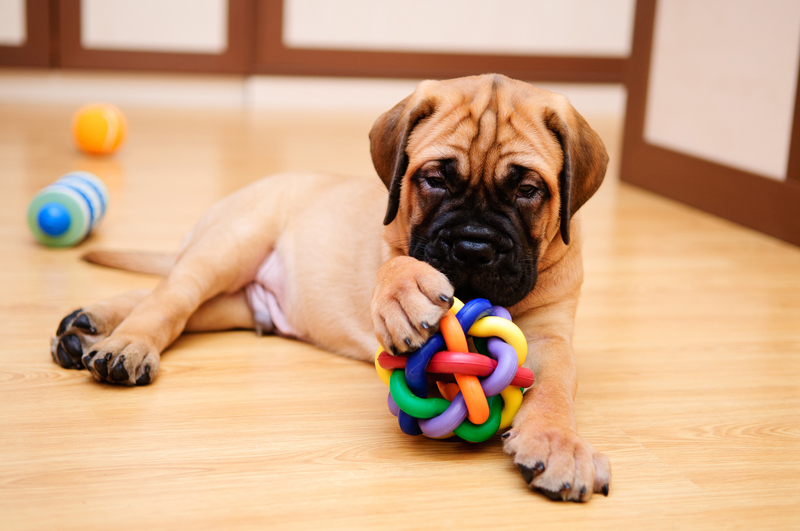Hands-On Activities to Promote Recycling Awareness in Kids
Fostering recycling awareness in children is essential for building a sustainable future. Kids today are the environmental stewards of tomorrow, and introducing them to the concepts of reducing waste and recycling early on can make a significant difference. One of the most effective ways to do this is through interactive, hands-on activities that are both educational and fun. In this comprehensive guide, we'll explore some of the best hands-on recycling activities for kids and provide advice on how educators and parents can integrate these ideas into everyday life.
Why Start Early? The Importance of Recycling Education for Kids
Instilling environmental values, such as waste reduction and recycling, in young children lays the groundwork for eco-friendly habits in adulthood. Raising recycling awareness in kids not only teaches them about environmental responsibility, but also empowers them to participate in local and global efforts to reduce waste.
- Habit Formation: Early exposure cements positive routines for life.
- Critical Thinking: Learning to sort and repurpose materials boosts problem-solving skills.
- Community Awareness: Children realize they can make a difference in their communities.
Pro Tip: Make recycling a shared family or classroom goal! Celebrate small successes together to motivate consistent participation.

1. The Great Home Sorting Game
Transform Everyday Chores Into Fun Recycling Activities
One of the most effective ways to enhance recycling awareness in children is to involve them in daily waste management at home. Set up a "Sorting Game" where kids help separate household trash into recyclables, compost, and waste.
- Materials Needed: Three bins labeled with pictures: Paper, Plastic, Compost.
-
How to Play:
- Collect clean recyclables from the day's waste.
- Have children guess which bin each item belongs in.
- Give stickers or small rewards for correct sorting.
This encourages daily repetition and builds strong recycling habits.
2. DIY Upcycling Crafts
Creativity Meets Sustainability
Upcycling turns old or discarded items into something new, helping kids see the value in reusing objects rather than throwing them away. Upcycling projects give children a hands-on experience with recycling concepts.
- Egg Carton Seed Starters: Fill each cup of a cardboard egg carton with soil and plant seeds -- a fun gardening project that demonstrates how everyday items can be repurposed.
- Milk Jug Bird Feeders: Cut openings in clean milk jugs to make feeding stations for local birds. Decorate with paint or markers for extra flair.
- Tin Can Planters: Clean, paint, and decorate tin cans to use as plant pots.
Let kids share their creations on a display shelf or garden, sparking conversations about upcycling and recycling awareness with friends and family.
3. School or Community Recycling Champions Program
Empowering Kids as Environmental Leaders
Schools and community groups are ideal platforms for nurturing recycling awareness among young learners. Establish a Recycling Champions program:
- Student Teams: Assign small groups to monitor classroom bins, educate peers, and report on progress.
- Visual Progress Boards: Use charts and graphs to track recycling quantities and celebrate milestones.
- Monthly Challenges: Set recycling goals for classes or grades, offering eco-friendly prizes.
This approach boosts engagement and gives children ownership over their environmental impact.
4. Recycled Art Competitions
Nurturing Creativity Through Reuse
Host a recycled art contest at home, school, or within community centers. Children can use recyclable materials to create sculptures, paintings, collages, or fashion accessories.
- Categories: Functionality, creativity, and originality.
- Materials: Cardboard, bottle caps, magazines, fabric scraps, etc.
- Display: Organize a gallery or social media showcase to recognize all participants.
Art competitions inspire innovation and reinforce that recycling is not just about disposal, but about giving new life to everyday objects.
5. Interactive Recycling Story Time
Blending Literacy and Eco-Conscious Values
Reading stories about recycling is an excellent introduction for young kids. To make it interactive:
- Choose books that highlight environmental heroes and the importance of waste separation.
- Pause during the story to ask questions and discuss recycling concepts.
- Encourage children to illustrate alternate endings or write their own tales about recycling adventures!
These sessions can be enhanced with role-playing--let kids act out collection day or a trip to the recycling center.
6. Neighborhood Clean-up and Recycling Campaigns
Community Building With a Purpose
Organize neighborhood or park clean-up events where families pick up litter and sort recyclables together. This instills pride in community spaces while reinforcing the practical aspects of recycling.
- Distribute reusable gloves and sacks for different types of waste.
- Teach kids safety precautions, like avoiding sharp objects.
- End with a 'waste audit' to see how much was collected and recycled.
*Public recognition and group photos can motivate children to repeat the activity.*
7. Build a Homemade Recycling Center
Role-Play and Exploration
Create a mini recycling center at home or school. Use cardboard boxes, labels, and posters to simulate the real sorting process.
- Label sections for: Paper, plastics, metal, glass, compost.
- Role-play: Let kids take turns as "Recycling Supervisors" overseeing sorting or explaining rules to 'visitors.'
A homemade recycling center sparks curiosity and helps children understand what happens to recyclables after they leave the bin.
8. Science Experiments: Decomposition and Recycling
Making Science Fun and Tangible
*Hands-on science activities* deepen recycling understanding by demonstrating how long it takes for different materials to decompose and why recycling is crucial.
- Bury samples of paper, plastic, food waste, and metal in soil-filled containers.
- Observe changes each week and chart progress.
- Discuss why some items break down and others persist, linking to recycling solutions.
These activities make environmental science both exciting and memorable.
9. Educational Recycling Games and Quizzes
Gamify Learning for Lasting Engagement
Use board games, online quizzes, and mobile apps to reinforce recycling knowledge. Try a "Recycling Relay" where children race to sort items correctly, or have group trivia contests.
- Incorporate rewards for high scores or streaks.
- Share interesting facts: For example, did you know recycling one aluminum can saves enough energy to run a television for three hours?
This gamified approach makes learning about recycling fun and fosters healthy competition and teamwork.
10. Composting as a Family or Class Project
From Food Scraps to Rich Soil
Composting food scraps at home or in school gardens is a powerful way to combine recycling awareness and respect for nature's cycles.
- Create a simple compost bin using recycled materials.
- Teach kids about which materials are compostable and how decomposition works.
- Use the finished compost in a class garden or potted plants, completing the recycling circle.
Children enjoy watching the transformation from waste to nutrient-rich soil and love seeing the tangible benefits in plant growth.
11. Recycling-Themed Field Trips
Learning Beyond the Classroom
Visit a local recycling plant, landfill, or eco-center to give kids a firsthand look at what happens to their recycled materials.
- Arrange guided tours and Q&A sessions with staff.
- Encourage kids to take notes or draw what they see.
- Discuss the scale of waste and emphasize the importance of reducing, reusing, and recycling.
Field trips turn abstract concepts into lasting memories and reinforce the importance of individual action.
Tips for Educators and Parents: Maximizing the Impact of Recycling Activities
- Lead by Example: Always practice what you teach. Children imitate adult behavior--consistent recycling at home and school is key.
- Be Persistent but Positive: Avoid punitive messages. Focus on encouragement and show visible excitement for eco-friendly actions.
- Use Visuals and Stories: Pictures, diagrams, and success stories make recycling concepts concrete and motivating.
- Connect to Larger Issues: Relate daily recycling to global challenges like marine pollution and climate change, using age-appropriate language.
- Share Successes: Celebrate accomplishments with family newsletters, social media posts, or classroom displays.

Frequently Asked Questions (FAQ) -- Promoting Recycling Awareness in Children
What is the best age to start teaching recycling to kids?
Early exposure is best! Children as young as three can begin sorting recyclables, and activities can grow more complex as they develop.
How can I make recycling fun and relevant?
Connect recycling to kids' interests--use crafts, games, and technology, or involve them in community initiatives. Real-life challenges and rewards greatly enhance motivation.
What are common mistakes to avoid?
- Mixing non-recyclables (like food-contaminated containers) with recyclables.
- Using unclear or inconsistent bin labeling.
- Neglecting to explain why recycling matters -- context is vital!
Are hands-on activities better than lectures?
Absolutely! Children learn best through doing. Hands-on recycling activities stimulate curiosity and build practical skills that outlast passive learning.
Conclusion: Building a Greener Generation Through Hands-On Recycling Education
Raising recycling awareness in kids isn't just an environmental duty--it's a fun, collaborative journey. By integrating practical, interactive activities into daily life, educators and parents can empower children to protect the planet. Whether it's through creative crafting, science experiments, or community campaigns, hands-on practices make recycling accessible and meaningful. Start small, be consistent, and watch as kids grow into responsible, environmentally-conscious citizens--one recycled bottle, craft, or compost pile at a time.
Ready to boost recycling awareness in your kids? Choose one activity from this guide and start today. Small actions now lead to a cleaner, greener tomorrow!